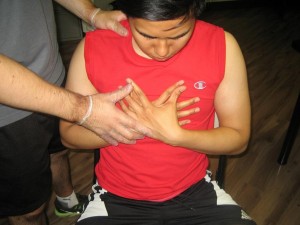Mitral valve surgery is an open heart procedure to treat the narrowing and regurgitation of the mitral valve. The mitral valve is located at the left chamber of the heart. When the valve is open, it allows the blood to flow from the left atrium to the left ventricle, which is the heart’s main pumping chamber. It then closes to keep the blood from leaking back into the lungs when the ventricles contract to push blood to the body.
When your mitral valve is not able to close completely, there will be backflow of the blood to the lungs during the contraction of the left ventricle. The cause of mitral valve regurgitation may include degeneration related to aging, rheumatic fever, endocarditis or ischemic heart disease.
Once the mitral valve is severely damaged, it can be replaced. However, in most cases, mitral valve can be repaired through a surgery. Surgery is usually indicated if your mitral valve is calcified or hardened, preventing the blood to move forward, and when it is too loose which causes the backflow of the blood.
What to expect about the procedure

Days prior to the procedure, your doctor will discuss the surgery to help you learn about the operation. Your doctor will usually suggest a number of actions such as having a conference with the health care team and visiting the critical care unit where you will be monitored after the operation. Before the start of the surgery, you will be given a general anesthesia.
The procedure of the mitral valve surgery may be done in different ways. A 2-inch to 3-inch long cut on the part near the sternum is made in order to repair the mitral valve. Another procedure called endoscopic surgery may also be done by making small holes in the chest and a camera is inserted into the holes to get a 3D view of the heart while doing the surgery.
Management of complications of mitral valve surgery
Minimally invasive surgeries have lesser risk of developing complications. However, the possible risk for mitral valve surgeries may include damage to the heart and nearby organs, heart attack and stroke. In these cases, CPR may be indicated. Minor symptoms post surgery can also result in nausea, vomiting, bruising, minor bleeding, allergic skin reaction, and irregular heart rhythm. When serious complications occur, immediately call for help. Most of the time, an immediate life saving surgery is necessary in serious complications. Treat minor symptoms of vomiting and nausea by giving clear fluids to prevent dehydration. Teach the person the proper breathing exercise to help the flow of oxygen and help the person take medication for heart disease when signs of a high blood pressure begins to show.
References:
MedlinePlus. Mitral Valve Surgery-minimally invasive. Retrieved on July 8, 2014 from http://www.nlm.nih.gov/medlineplus/ency/article/007411.htm.

